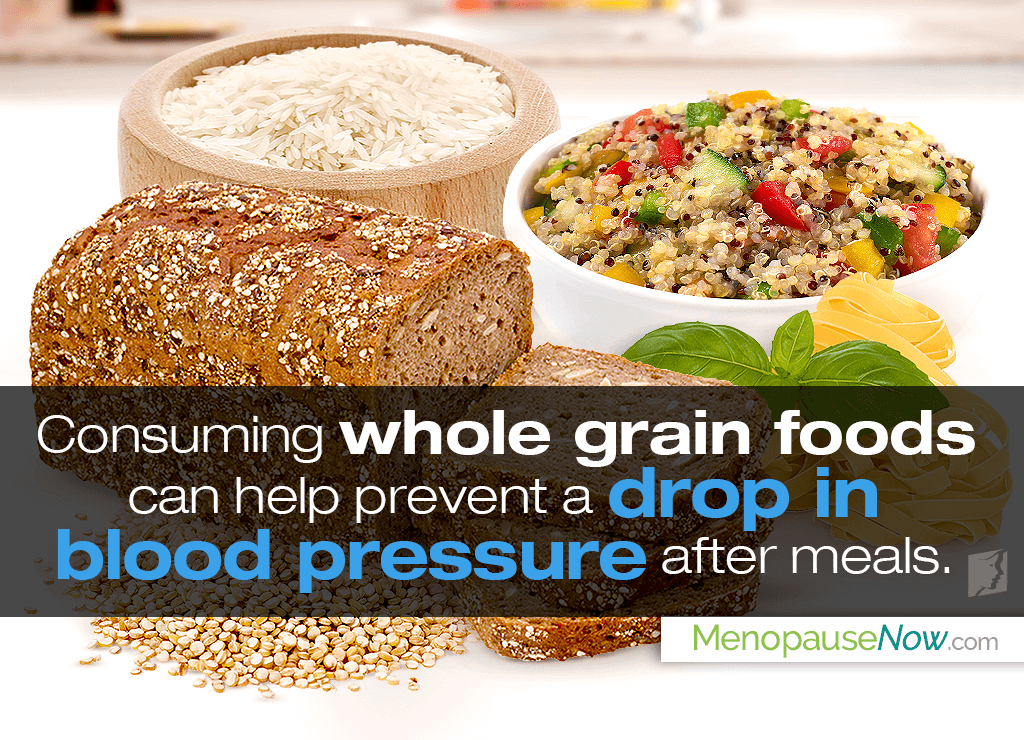Suffering from dizziness after eating is common among many women, but that does not mean it has to persist. Fortunately, there are several ways to prevent the symptom's occurrence. Continue reading below to find out eight easy steps to prevent dizziness after eating.
Eat Slowly Digested Foods
Foods made with refined flour, white rice, and potatoes pass quickly from the stomach to the small intestine, which can cause postprandial hypotension, low blood pressure after eating. Eat slowly-digested whole grains, protein, healthy oils, and beans as they help maintain normal blood pressure.
Have Smaller Meals
If you suffer from dizziness after eating, try having smaller meals several times each day instead of having only three large meals daily in order to maintain a consistent blood pressure. Have healthy snacks in between main meals to steer clear of sharp drops in blood sugar.
Avoid Large Amounts of Sugar
It is recommended to avoid consuming large amounts of sugar - commonly found in sodas and sugary drinks - during meals because they can cause blood sugar levels to spike and then sharply drop, leading to dizziness.
Stay Hydrated
Drinking plenty of water before meals and throughout the day is essential to preventing dizziness and lightheadedness. Drinking between 12 and 18 ounces of water 15 minutes before eating can also help maintain stable blood pressure.
Avoid Strenuous Activities
Blood pressure is usually at its lowest between 30 and 60 minutes after eating. As such, doing strenuous activities - swimming, biking, jogging, etc. - right after eating can cause dizziness, nausea, and fainting. Wait a while and rest before working out.
Drink Ginger Tea
Ginger is an excellent herb for calming the stomach, and research studies have proven the herb's effectiveness in relieving symptoms of dizziness and vertigo. Steep ginger root in a cup of boiling water for at least five minutes to prepare tea.
Avoid Trigger Foods and Drinks
Many foods as well as ingredients found in popular foods and drinks are known to trigger migraines, which can make you feel dizzy after eating. They include:
- The food additives nitrates and nitrites, found in cured meats, hot dogs, lunch meats, etc.
- The flavor enhancer monosodium glutamate (MSG) in soy sauce and many Asian foods
- Artificial sweeteners, like aspartame
- Dairy products, especially aged cheeses
- Caffeine
- Alcohol
- Among others
Consume Phytoestrogens
If you are in menopause, perhaps your dizziness after eating is due to fluctuating estrogen and progesterone levels. Consume foods rich in phytoestrogens, plant-based estrogens that act like the endogenous hormone in the body. They include soybeans, legumes, and flaxseed.
More Information
If these diet adjustments do not resolve dizziness after eating during menopause, look into treating the root cause of hormonal imbalance. Click on the following link to learn about various natural and effective dizziness treatments to pursue for long-lasting relief.
Sources
- American Migraine Foundation. (n.d.). Top 10 Migraine Triggers and How to Deal with Them. Retrieved March 13, 2019, from https://americanmigrainefoundation.org/resource-library/top-10-migraine-triggers-and-how-to-deal-with-them/
- Cleveland Clinic. (2015). Headaches and Food. Retrieved March 13, 2019, from https://my.clevelandclinic.org/health/articles/9648-headaches-and-food
- Harvard Health Publishing. (2018). Eating can cause low blood pressure. Retrieved March 13, 2019, from https://www.health.harvard.edu/heart-health/eating-can-cause-low-blood-pressure
- National Institutes of Health. (2015). Dizziness. Retrieved March 13, 2019, from https://medlineplus.gov/ency/article/003093.htm
- Ni, F. et al. (2016). Clinical observation on ginger-partitioned moxibustion plus manual repositioning for benign paroxysmal positional vertigo (BPPV). Journal of Acupuncture and Tuina Science, 14(1), 31-35. doi: 10.1007/s11726-016-0897-3




